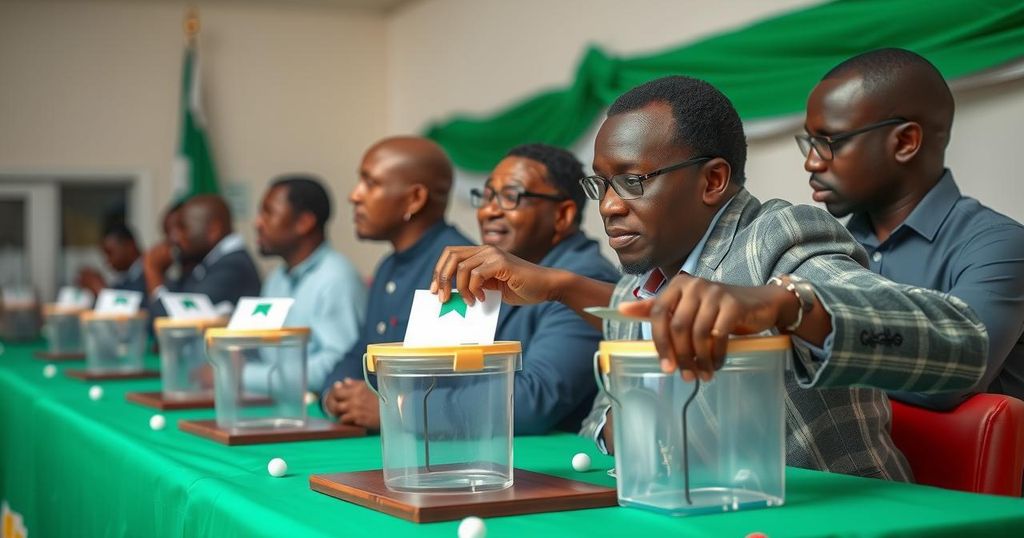Comoros held a parliamentary election that faced a boycott from opposition parties who criticized President Azali Assoumani for authoritarianism and electoral fraud. With around 330,000 registered voters, low turnout was expected due to widespread disillusionment with the political system. The election results will determine 33 legislative seats, and the voting proceeded despite concerns over Tropical Cyclone Dikeledi.
The Comorian government conducted a parliamentary election on Sunday, amidst claims from opposition leaders of increasing authoritarianism by President Azali Assoumani’s administration. These leaders indicated intentions to boycott the election, citing concerns regarding the fairness and integrity of the electoral process. Approximately 330,000 citizens from a population of 850,000 were registered to vote, but opposition groups anticipated low turnout due to widespread discontent with the political landscape. The election aims to fill 33 legislative seats, and preliminary results are expected next week.
Notably, Assoumani’s ruling party, the Convention for the Renewal of the Comoros, previously secured a dominant presence in the parliament, winning 20 of the 24 contested seats during the 2020 elections, which were labeled a “masquerade” by dissident factions. Assoumani himself exercised his voting rights in Mitsoudjé, despite the history of electoral fraud allegations surrounding his presidency. His political career has included periods of military rule, power recalls, and constitutional adjustments that have allowed him to circumvent term limits. The situation has fostered an environment of political repression, with critics indicating that the democratic process in Comoros has been undermined systematically.
The archipelago of Comoros has a tumultuous post-colonial history characterized by coups and governmental instability since its independence from France in 1975. The current political crisis is heavily influenced by the longstanding tenure of Assoumani, who has faced scrutiny and opposition from various political factions throughout his leadership. Despite adverse weather conditions posed by Tropical Cyclone Dikeledi, the electoral process proceeded as officials urged citizens to participate in shaping their governance, although doubts lingered regarding the legitimacy of this election.
Comoros, a small archipelago off the east coast of Africa, has experienced a turbulent political climate since achieving independence from France in 1975. The nation has witnessed multiple military coups, with President Azali Assoumani gaining power through force in 1999. His tenure has seen a continuous cycle of elections challenged by accusations of fraud and suppression of dissent. Recent constitutional changes have allowed Assoumani to extend his presidency, igniting controversy as opposition parties denounce the diminishing integrity of the electoral process. The ongoing discontent among the population reflects political instability that questions the viability of democratic governance in the region.
The parliamentary election in Comoros underscores the ongoing struggle between the ruling party led by President Azali Assoumani and opposition factions that have expressed significant discontent with government practices. The anticipated low voter turnout illuminates the populace’s disenchantment with the electoral process, rooted in persistent allegations of fraud and political repression. Given the islands’ fraught history, observers remain watchful of the developments resulting from this election and the potential implications for Comoros’ political future.
Original Source: abcnews.go.com






